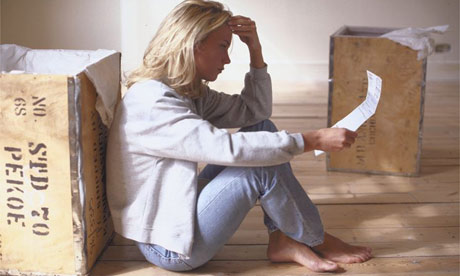Mortgage repossessions have fallen to their lowest level since 1982 last year, new figures show. According to the Council of Mortgage Lenders, the number of properties repossessed last year fell 25% to 7,700 – the lowest number since 1982. Over the course of 2016, the number of mortgages in arrears also fell by 7%. The CML said […]
 Mortgage repossessions have fallen to their lowest level since 1982 last year, new figures show.
Mortgage repossessions have fallen to their lowest level since 1982 last year, new figures show.
According to the Council of Mortgage Lenders, the number of properties repossessed last year fell 25% to 7,700 – the lowest number since 1982.
Over the course of 2016, the number of mortgages in arrears also fell by 7%.
The CML said that while the overlying trend in repossessions was downward, care needed to be taken in making annual comparisons.
It said that the timing of some possessions last year may have been affected by a court case that caused lenders to review their processes.
The CML warned that despite the fall in the number of repossessions, borrowers needed to be ready for a rise in interest rates.
There has been a steady fall in mortgage repossessions since 2008, coinciding with lower interest rates and a proactive approach from lenders in managing borrowers in financial difficulty.
Borrowers have also been helped by lenders slashing rates in response to the Bank of England cutting the base rate for the first time in seven years to 0.25% last August.
However, borrowers are now facing pressure on incomes from rising inflation as a result the pound falling after the referendum and pushing up the price of imports.
CML director general, Paul Smee, said: “It is encouraging to see another improvement in arrears and possessions during a year in which borrowers were clearly helped by the downward trend in mortgage rates. But customers do need to be ready for a time when the outlook may not be so benign, with pressure on real incomes increasing and as interest rates begin to move upwards again.
“As ever, borrowers who fear they may miss a payment should speak to their lender. Lenders remain committed to helping borrowers work through any period of temporary payment difficulty and remain in their home wherever possible.”
Jonathan Harris, director of mortgage broker Anderson Harris, said: “The only direction for rates to move is upwards and while this isn’t expected to happen imminently it is important that borrowers are prepared.
“While repossessions and arrears are on the decline, there are still many homeowners being repossessed or finding themselves in arrears on their mortgage each year, which begs the question: what will happen when interest rates start to rise or if they were to lose their job? How will people cope? We suspect that when it comes to their finances there are many people teetering on a knife edge and rate rises could easily push them over.
“For those who would struggle to pay their mortgage were interest rates to rise, a fixed rate makes a lot of sense, and the good news is that there are many excellent deals available which will keep monthly payments low and help with budgeting.
“While ten-year fixes have increased in popularity and it may seem a no-brainer to secure a rate for that length of time, it is important not to fix for longer than you are absolutely sure about or you may have to pay a hefty penalty to get out of the mortgage early if your circumstances change.”














